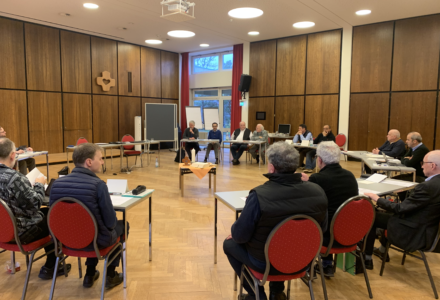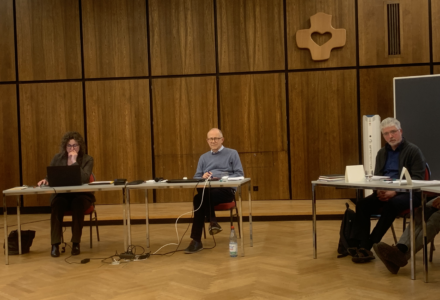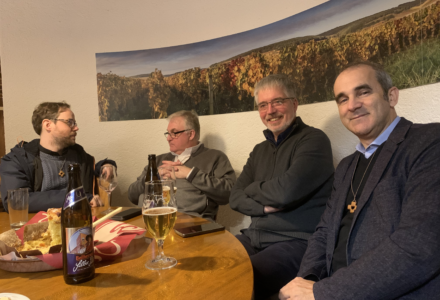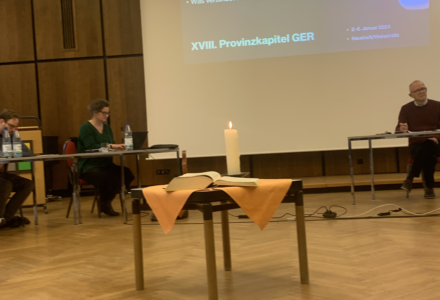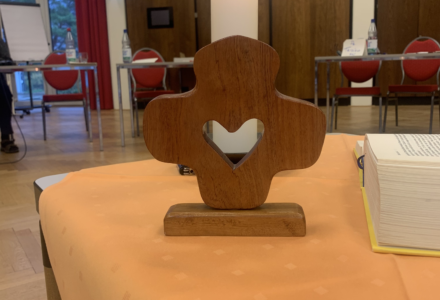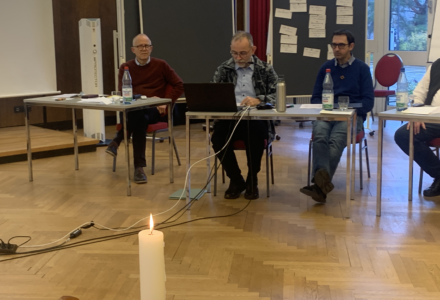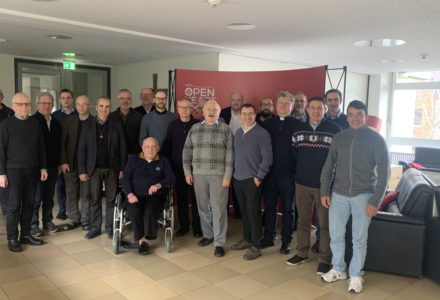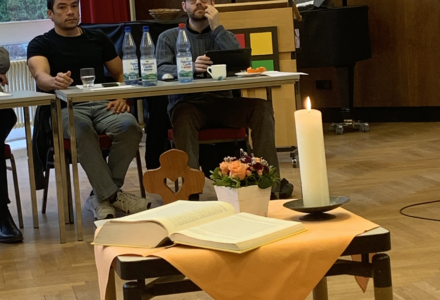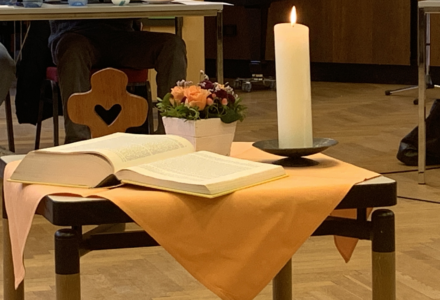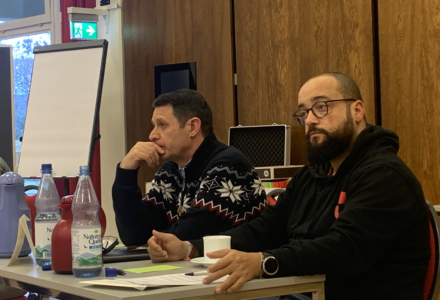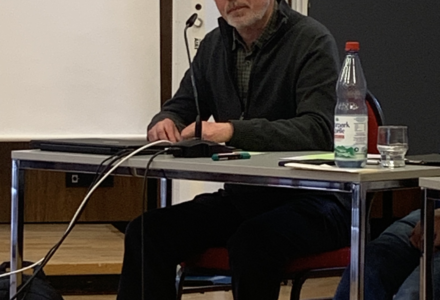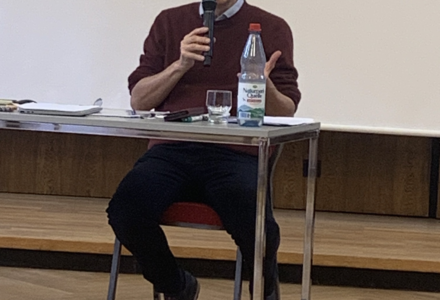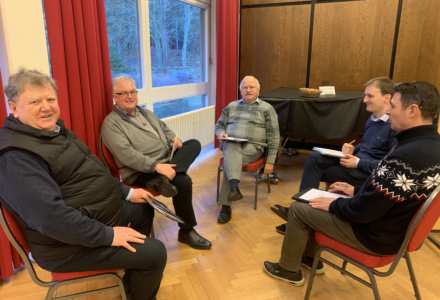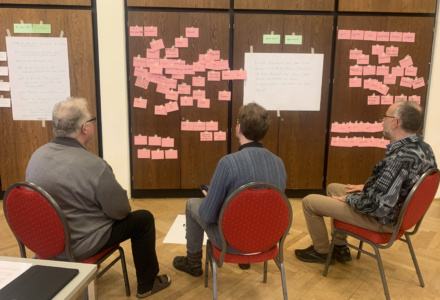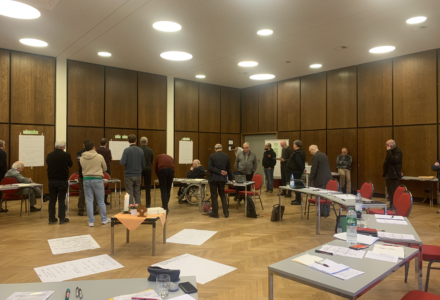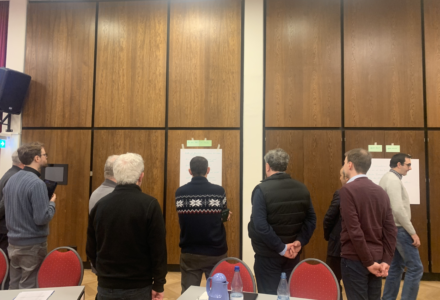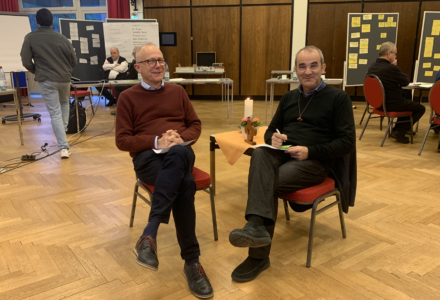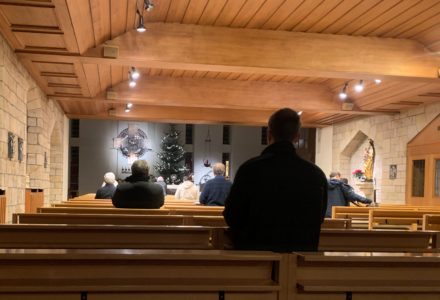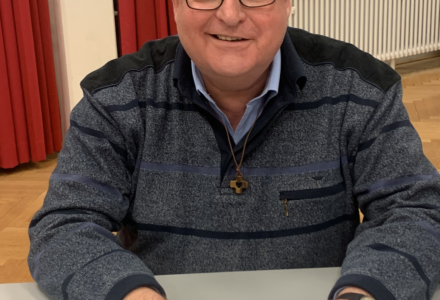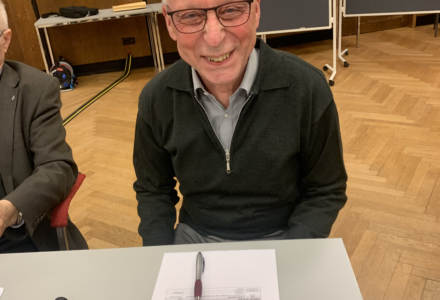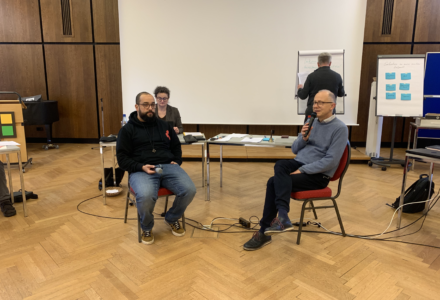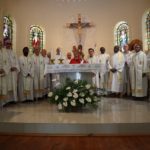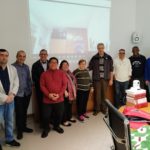From January 2-6, the 18th Provincial Chapter of the German province was held in Neustadt in assembly style.
In early January the Dehonians of the German province gathered in Neustadt (GE) to celebrate the 18th provincial chapter.
The chapter was held with two novelties compared to the past. There were no delegates from the communities but a general assembly, where everyone had the opportunity to actively participate-a method that saw a wide participation of confreres. A second novelty concerned the method. They wanted to assume the synodal method, made up of listening to God’s word, personal silence, listening to each other and of course dialogue and debate in order to arrive at some decisions.
Already the numbers are eloquent to understand the situation of Dehonians in Germany in the context of a general reduction of the Dehonian presence in Europe. There are currently 36 brethren (including two bishops) with an average age of 65; 2/3 under of the brethren under 65 come from other entities of the Congregation.
Chapter, spiritual process
In the preparatory work for the chapter, there was a desire to come to decisions, avoiding the chapter being only a fraternal dialogue. Therefore, the preparatory committee together with the external moderator (Peter Hundertmark) introduced the synodal methodology, where personal silence and listening to the word have equal citizenship of the discussions. A method, which for some seemed a middle ground between spiritual exercises and real chapter, and which in the end helped to arrive at shared and calm decisions.
The first few days were devoted to understanding the spiritual well-being of each confratell, the current state of the province, the financial stability, and the projects developed or underway by the Mission Office.
Then themes were collected, criteria identified, issues proposed that will be further taken up after the chapter.
Themes and decisions
Among the many topics placed on the agenda were: the situation of the works (Handrup, Oberhausen, Maria Martental), personal resources, the international dimension, the international studentate in Freiburg, vocation ministry, and the Dehonian family.
Four were the chapter priorities on which a decision or orientation was reached.
First of all, vocations ministry. The lack of vocations in Germany and Europe is still a controversial issue, as proposals have always been disappointing. However, the majority of chapter members have asked the provincial council to set up a team of confreres to dedicate themselves to this field. We should not stop and fixate on finding priests and numbers for the province but much more deeply help young people rediscover their vocation, their path, their future, without excluding religious life. It was also proposed to combine the vocational theme with the focus on the “Dehonian family.”
A second theme is the international dimension. Already for years the German province has made the international choice. Also in pastoral care several brethren are engaged in the field of migration. The chapter unanimously oriented itself in the development of this dimension. There was agreement on the criteria for the reception and permanence of confreres who wish to engage in the mission of the German province.
Another long-debated topic was the initial formation that takes place in Freiburg. There is a studentate for European candidates in Paris, while Freiburg welcomes non-European candidates. The future depends on many internal and external factors, so they want to monitor the situation. In 2026 there will be a provincial assembly dedicated to this important issue.
A fourth issue is available personnel. It is necessary to take an overall view: what affects one house affects all. For example, the change of personnel in one house is never painless and also affects other communities, because of the charism of the people and the scarcity of turnover.
Finally, the issue of the lifestyle of the religious community was addressed. The focus was on a simple, sustainable style that is regularly verifiable.
The chapter closed with the election of the delegate and his deputy: Fr. Olav Hamelijnck and Fr. Horst Steppkes.


